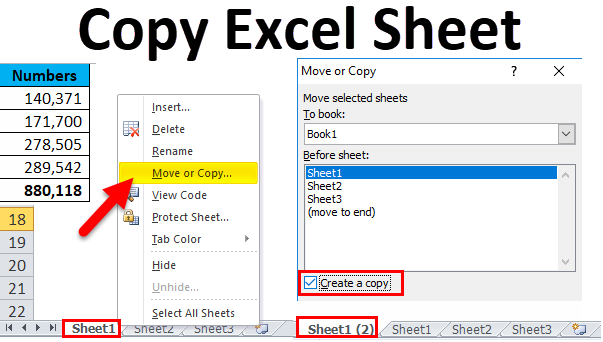5 Simple Ways to Import Excel Sheets into Another Workbook

Excel users often need to consolidate data from multiple spreadsheets into one workbook, especially when managing large datasets or preparing reports. Here are five straightforward methods to import Excel sheets into another workbook, each suitable for different scenarios.
1. Manual Copy and Paste

The simplest way to import data between workbooks is through copy and pasting. This method is best for small datasets:
- Open the workbook containing the sheet you want to copy.
- Right-click on the sheet tab you wish to move, select Move or Copy.
- In the dialog box, choose the workbook you want to move the sheet into from the dropdown list.
- Check the Create a copy box if you want to retain the original sheet in its current location.
💡 Note: This method can overwrite existing data in the destination workbook if not careful.
2. Using Excel’s Built-in Functions

Excel’s functions like CONCATENATE, CHOOSE, and INDIRECT can be used to reference data from different workbooks:
- Open the workbook where you want to display the imported data.
- Use the INDIRECT function to link to a cell in another workbook:
=INDIRECT(“‘[WorkbookName]SheetName’!CellReference”)
🔔 Note: Changes in the source workbook will automatically update the destination workbook using this method.
3. External Data Connections

Creating an external data connection is effective for more structured data imports:
- Go to the Data tab, then click New Query > From File > From Workbook.
- Select the workbook file, choose the sheet, and then load the data as either a table, pivot table, or pivot chart.
4. VBA Macro for Importing Data

If automation or larger data sets are involved, VBA macros can be incredibly useful:
- Open the VBA editor by pressing ALT+F11.
- Create a new module and write a macro to copy data from one workbook to another:
Sub ImportSheet()
Dim sourceSheet As Worksheet
Dim targetBook As Workbook
Dim targetSheet As Worksheet
Set sourceSheet = Workbooks("SourceWorkbook.xlsx").Sheets("Sheet1")
Set targetBook = Workbooks("TargetWorkbook.xlsx")
Set targetSheet = targetBook.Sheets.Add
sourceSheet.Copy Before:=targetSheet
End Sub
5. Power Query

Power Query, now part of Excel, provides advanced data import capabilities:
- Navigate to the Data tab and choose Get Data > From File > From Workbook.
- Select your file, then use Power Query’s interface to transform and load the data into your current workbook.
Each method has its advantages:
- Manual copying is quick but less error-prone when dealing with small data.
- Using functions for real-time updates is perfect for linked data.
- External connections and Power Query offer more control over how data is imported and transformed.
- VBA scripts provide the ultimate flexibility for regular data import tasks.
Choosing the right method depends on the complexity of your task, the frequency of updates needed, and the level of automation desired. Whether it's for small one-off tasks or for routine report generation, these methods ensure your data integration process in Excel is seamless and efficient.
Finally, here are a few considerations to keep in mind:
🛠️ Note: Ensure both source and target workbooks are closed or saved to avoid errors during the import process.
🔧 Note: For large datasets, consider using Power Query for its ability to handle massive amounts of data efficiently.
By leveraging these techniques, you can streamline your workflow, reduce errors, and make your data management in Excel more productive.
What are the risks of copying data manually?

+
Manual copying can introduce human error, potentially overwriting existing data in the destination workbook if not done carefully. It’s also less efficient for large datasets or frequent updates.
How can I update data automatically in Excel?

+
Using Excel functions like INDIRECT allows for automatic updates. Alternatively, Power Query or VBA macros can be set up to refresh data regularly or on specific events.
Can I use Power Query for Excel with large datasets?

+
Yes, Power Query is designed to handle large datasets efficiently, offering capabilities like data transformation and integration from multiple sources with minimal manual intervention.
Are there any limitations to using VBA macros for importing data?

+
VBA macros are powerful but require some programming knowledge. They can be resource-intensive with very large datasets, and execution can take time. Also, ensuring macros are compatible with different Excel versions can be challenging.
What’s the best method for a novice Excel user?

+
Manual copy and paste or using Excel’s built-in functions like INDIRECT are beginner-friendly methods. They require minimal setup and are straightforward to understand and implement.


